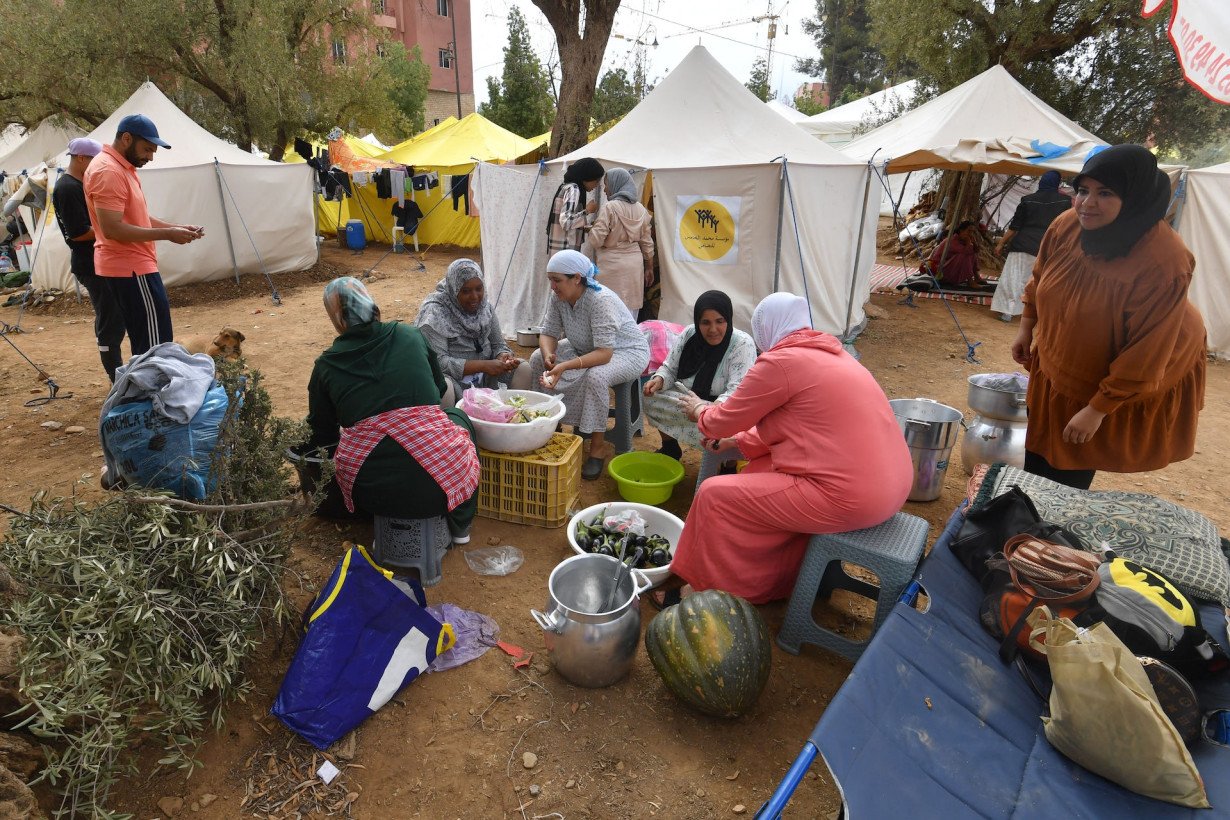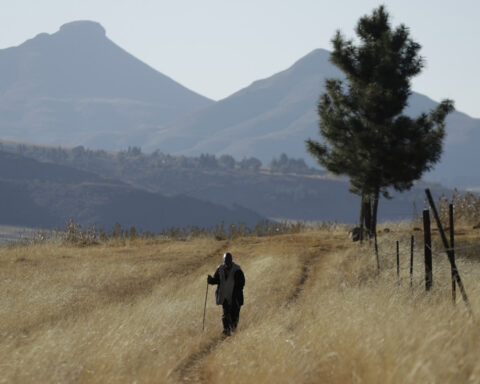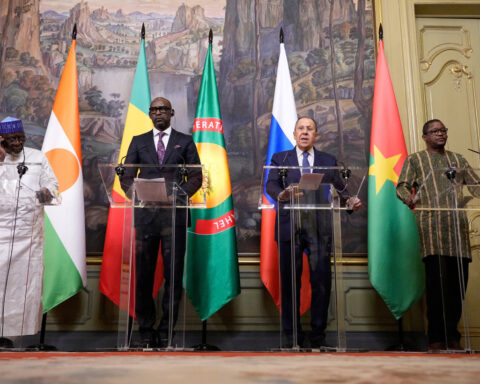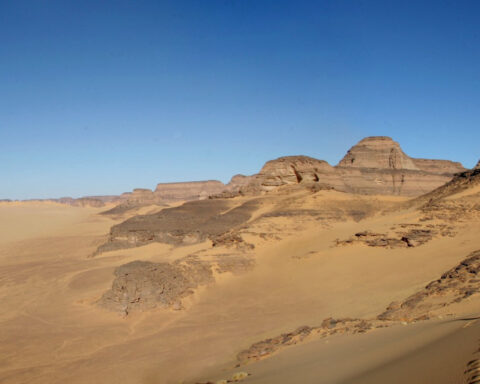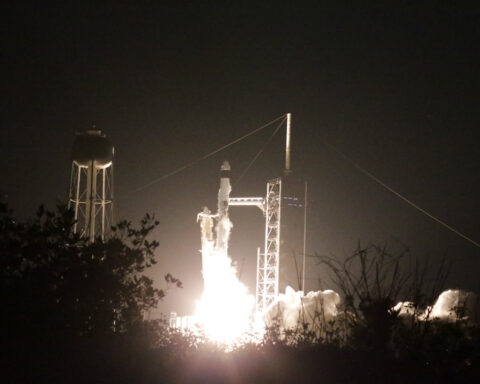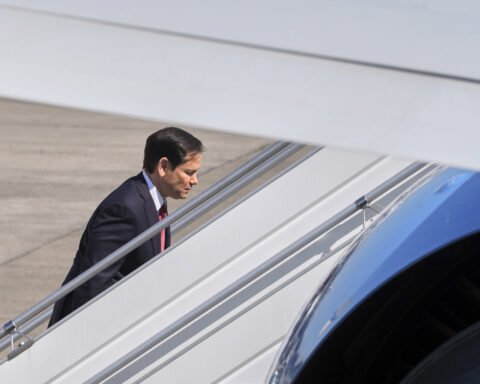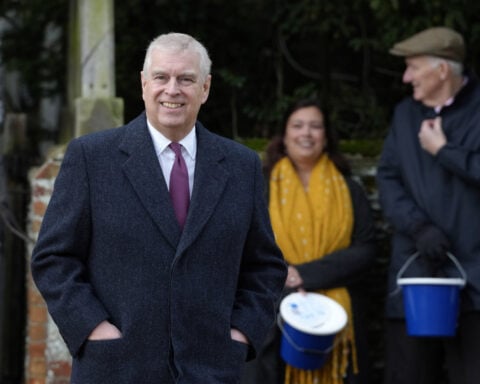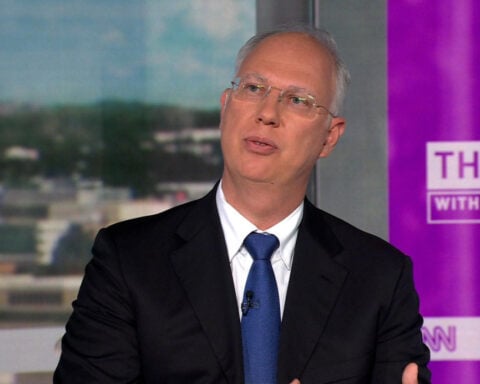A 6.8 magnitude earthquake struck southern Morocco on Sept. 8, 2023, causing widespread damage in mountain villages. Three days later, an unusually severe Mediterranean storm caused two poorly maintained Libyan dams to collapse, resulting in massive floods in and around the port city of Derna.
By Sept. 19, more than 3,000 people had died in Morocco, according to the International Federation of Red Cross and Red Crescent Societies. And the World Health Organization was saying that nearly 4,000 people had died in Libya, with another 10,000 missing – casualties that are unprecedented for a flood in Africa. More than 46,000 Libyans have become displaced, according to the International Organization for Migration.
The Conversation asked William Lawrence, a professor of political science and international affairs who has served as a senior diplomat at the U.S. embassies in Morocco and Libya, to explain why responding to these disasters has been especially hard.
Is enough aid reaching communities harmed by these disasters?
No. With Morocco, there’s strong government bureaucracy, and in Libya, the authorities are weak. But the results are the same: Not enough aid has gotten where it needs to go.
Thousands of Moroccan villages have been damaged and hundreds destroyed, according to sophisticated mapping and eyewitnesses. The government is responding, but this is beyond its capacity. Even if the country’s entire army and everyone providing social services in Morocco were deployed, it wouldn’t be enough.
Morocco has so far declined aid offers from the United Nations, France and dozens of other countries. From the U.S., Morocco had only accepted, as of Sept. 19, President Joe Biden’s condolences. It had accepted aid from only Spain, the U.K., Qatar and the United Arab Emirates within a week of the earthquake.
Usually, with huge disasters like these, problems arise over the coordination of aid, rather than its acceptance.
Libya is contending with another unimaginable disaster. One quarter of the city of Derna, which previously had a population of 100,000, was completely flattened. In the first week, very little of the aid that arrived was getting where it needed to go because the access roads and bridges to Derna were wiped out.
It’s macabre and devastating, but what Libya most desperately needs right now is specialized equipment to extract bodies from the flood plain and rubble – and body bags. Islam, Libya’s dominant religion, normally requires a speedy burial, but local people can’t do that and dispose of corpses properly.
And Libya has little ability to coordinate the aid that’s getting there.
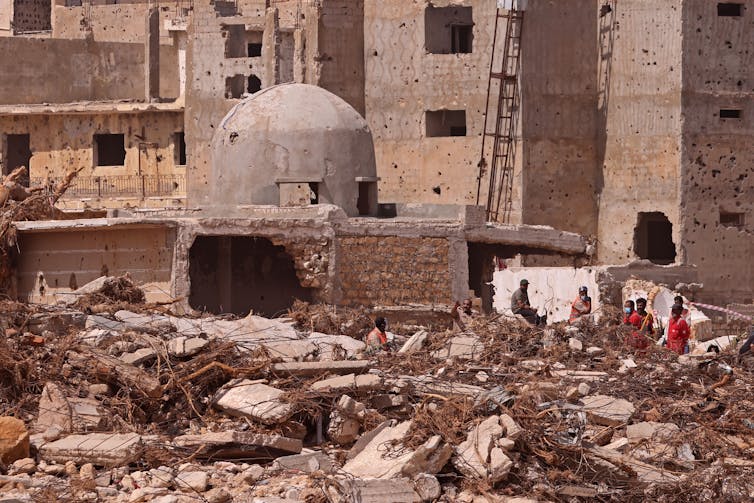
Rescue teams assist in relief work in Libya’s eastern city of Derna on Sept. 18, 2023, following deadly flash floods.
Do these countries need assistance?
King Mohammed VI, Morocco’s monarch, is reportedly a billionaire. But he can’t pay for everything the country needs to recover – and shouldn’t.
Moroccans aren’t necessarily angry that he’s rejecting some of the aid the international community is offering, due to a history and psychology around the monarchy that I’ve studied extensively. They refer to the monarchy in ways that go beyond what the monarch can accomplish. They want their king to do everything even when he can’t.
With Libya, there’s a different constellation of problems. Although it’s an oil-rich country that exports about 1 million barrels of petroleum on a good day, there’s poor governance. There are two governments fighting for power. Both sides are asking for foreign aid, while blaming each other for not doing anything to protect people from danger before, during and after the disaster.
How will initial aid restrictions affect later recovery efforts?
There are long-term benefits from good disaster diplomacy.
Spanish rescue teams saved a few lives in Turkey following its devastating February 2023 earthquake. Given that more than 50,000 people died in that disaster, it might not sound like much. But in addition to their contributions and provision of expertise, foreign rescuers’ success can inspire organizations and communities at home to get invested in longer-term recovery and reconstruction.
Because of Morocco’s wonderful tourism, there’s a lot of goodwill toward the nation and a lot of people who want to invest in the rescue – and a feeling now that they are being shut out. I believe that rejecting assistance may create the impression the government didn’t do everything it could in the earthquake’s immediate aftermath.
To be sure, something like this happened in the United States following Hurricane Katrina in 2004. I served on the State Department’s Katrina Task Force. Countries around the world were offering us aid that was very hard for us to accept psychologically and bureaucratically. The U.S. gives assistance better than it receives it. That assistance was hugely impactful – front page news in the donor countries that had previously only received U.S. aid and were now able to give back.
What are the Red Crescent and the Red Cross doing?
The Red Crescent, as the Red Cross is known in Muslim-majority countries, is assisting disaster survivors in Morocco. Its volunteers are providing first aid and counseling, helping move injured survivors to hospitals and evacuating others.
The International Federation of Red Cross and Red Crescent Societies (IFRC) is the world’s largest humanitarian organization. It’s also making a difference in Libya, where three Red Crescent volunteers have died in rescue efforts.
The problem in both cases is that there still aren’t enough staff and volunteers who are trained in large-scale disaster operations to meet the demand.
The IFRC has issued an appeal for 100 million Swiss francs (US$111.5 million) to assist Morocco. There is also a U.N. appeal for $71.4 million to help Libya deal with this disaster and its aftermath.

William Lawrence is affiliated with and a founding member of Friends of Morocco, the primary Returned Morocco Peace Corps Volunteer Group, for which is also has volunteered as its earthquake relief coordinator.

 Trump has begun another trade war. Here's a timeline of how we got here
Trump has begun another trade war. Here's a timeline of how we got here
 Canada's leader laments lost friendship with US in town that sheltered stranded Americans after 9/11
Canada's leader laments lost friendship with US in town that sheltered stranded Americans after 9/11
 Chinese EV giant BYD's fourth-quarter profit leaps 73%
Chinese EV giant BYD's fourth-quarter profit leaps 73%
 You're an American in another land? Prepare to talk about the why and how of Trump 2.0
You're an American in another land? Prepare to talk about the why and how of Trump 2.0
 Chalk talk: Star power, top teams and No. 5 seeds headline the women's March Madness Sweet 16
Chalk talk: Star power, top teams and No. 5 seeds headline the women's March Madness Sweet 16
 Purdue returns to Sweet 16 with 76-62 win over McNeese in March Madness
Purdue returns to Sweet 16 with 76-62 win over McNeese in March Madness
